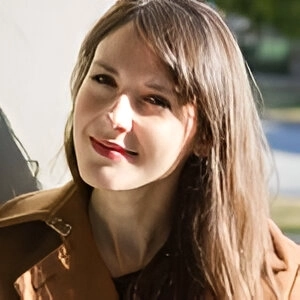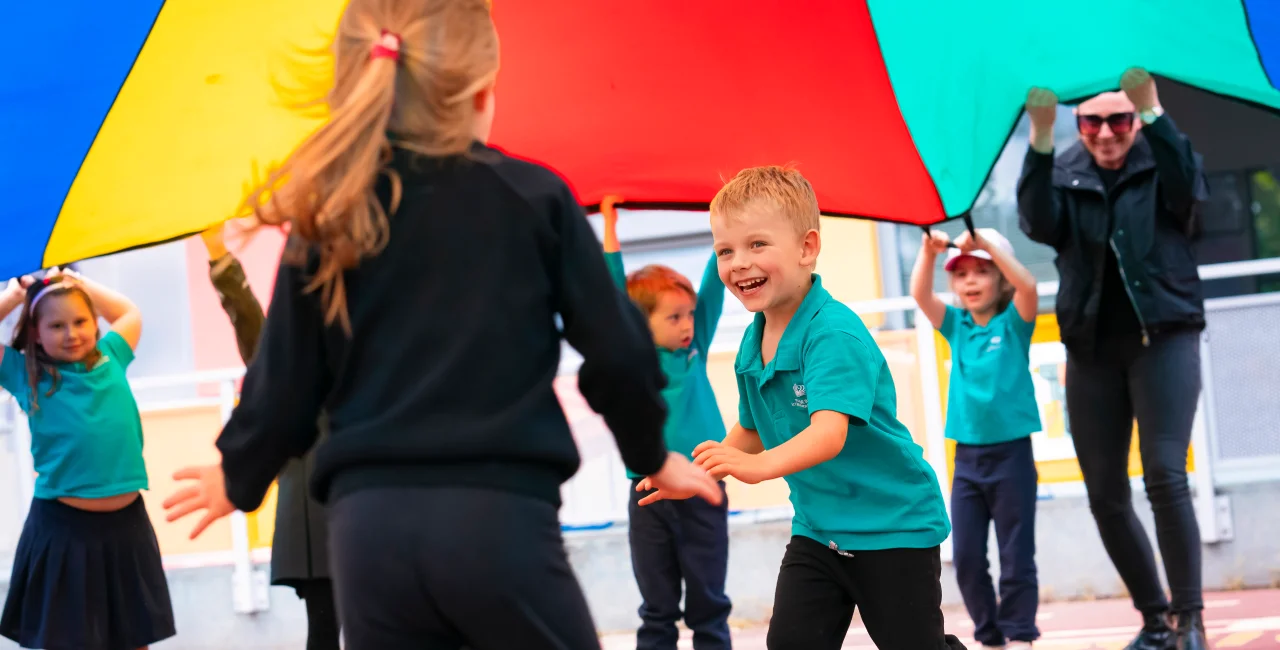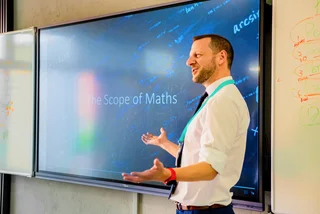Prague British International School students consistently achieve top grades in the International Baccalaureate Diploma Programme, setting new graduates up for success at the world’s most competitive universities. However, according to PBIS’s Emily Brown, the seeds of that success are planted long before the college-prep years.
Emily leads the Early Years Programme, designed for children ages two to five. This program takes a highly personalized, play-based approach to laying the foundation of children’s education. This personalized approach requires a high ratio of teachers to students, and Emily says that the best learning outcomes are achieved when strong partnerships between schools and parents exist.
This home-school nurturing gives children secure learning foundations from which they reap the benefits throughout their lives. We sat down with Emily to discuss the program, what sets it apart, and why play is at the heart of all learning, even for adults.
May I ask about your background and how you came to do what you're doing?
When I got my first teaching job in London, the school operated an approach called Highscope. Highscope is a play-based approach, so play and understanding the importance of play has always been at the heart of what I believe in as an educator.
Later I had an opportunity to move to Geneva to set up a nursery. The school was very forward-thinking, open to new ideas, and keen to adopt a play-based approach through the school, because no matter what age you are, you learn best through play. Imagine if you get a new mobile phone— rather than reading the instructions, it is better just to learn by hands-on exploration. Similarly, even as an adult if you get a new bike, you learn about the gear system and gadgets by using the bike, learning through play!
And this is where people, I think, forget that this is how we all learn. We want to explore, we want to challenge ourselves through play. That is how we do it. I think sometimes we forget that when we look at education.
I was in Geneva for eight or nine years and then came this opportunity to come to Prague for the Head of Early Years at PBIS. The Early Years team is phenomenal. The care, the love they have for each child—it's not a job to them. It is a complete vocation. Every child here is one of their children. And it is amazing to see the work and the effort and the care that they put into the education of our children.
And then obviously, we've been very fortunate: Nord Anglia Education is very forward-thinking, very supportive of new developments, and improving education for all children. The principal here is fantastic. She's a real advocate of learning through play. So even our older children now are experiencing the results: you get happy, contented children who are excited to learn.
What are the particular strengths of Early Years that set it apart from other educational programs geared toward young children?
I think our Early Years Programme is amazing. And it is so individual to every single child that walks through our door because although they’re all the same age and we have a development stage to get them to, we know that actually, they're all at different points in different areas. So we tailor it so that they are catered to by their interests and next steps.
We also observe how they're learning, and most importantly, we value every one of them, and we listen to them all so that we can plan engaging learning experiences and a stimulating environment. Our environment here is phenomenal.
Study within the classroom is enhanced in the outdoor area, which children can use at all times. The children also now have the opportunity to attend forest school sessions. Every week, the children go out into a section of the forest and learn the rules to keep themselves safe. For some children, being outside and learning is extremely important. But whatever environment they're in, we're working to ensure that they thrive and succeed.
For us, play is key to learning in Early Years, and it's really important to make sure that when we are planning for their next steps and each child, we know what they're interested in for them to build upon what they know already and be able to scaffold it.
It’s interesting what you say about everything being individualized. What does that look like in practice?
For example, we may have a child who is interested in cars: building ramps, taking cars apart, and counting them. A car has so many learning potentials. You can talk about the shapes of the cars, the wheels, how many there are, if one's taken away, or if I had two cars, how many wheels would I have then? So you get your math.
When he's there playing with his cars, I can bring in language to encourage his counting skills and awareness of numbers. But then we can adapt that by asking him to describe his car using adjectives. We could put the cars into paint or on Play-Doh and we can get him to move his car around and make a picture, describe it.
It's also then talking about cars: where's your car going to go? Telling a story, taking an adventure. How can we move, how can we make the car go faster down the ramp? How then could we measure how far it's gone?
So you see, there are all different areas of learning being brought into a child's interest in cars, but that is just his learning journey within the community and the cohort as well.
Tell us about class size. How can you be so individual with students?
Because we do have a high staff-to-child ratio. We are also flexible with our staffing in the fact that we work as an Early Years team—not just in year groups, but as a whole, flexible team. Then we all know every child within that team, so we can go in and out and, depending on the activity, depending on the needs of the children, we can put more staff in. It has to be a flexible and adaptable approach because every day something different will happen.
We are really a family here at PBIS. We want these children to feel like that when they come in. That’s why we take the time to build a relationship with parents and get to know them. For parents, this is an exciting time in their lives: their children are going to school for the first time. But it's also quite worrying, quite anxious. It's the unknown for some parents. It's a big step, going into education.
And we value the difference in everybody and we want to cater to everybody, so we work in partnership with parents, getting to know them, getting to know the family. We do want to build a relationship not only with the child but also with the family so we can provide this warm, safe, happy feeling. Because as soon as the child is happy and safe, they're going to learn.
What do you think are the particular needs of children of foreigners in this country, and how do you cater to those?
I think it's about being able to give children the support to be able to express themselves confidently. Whether that is using vocabulary verbally or developing the pre-skills for writing and fine motor controls.
And that is one of the big things that we push at school: giving children the ability to speak confidently. Even a native English person being introduced to a really rich vocabulary and being confident to express themselves is powerful. It will help them and support them as they continue through our school.
And we do value this international feel in our school. Yes, we are British, but we have a variety of nationalities, and it is wonderful to be able to value every single one of them and be able to see them as themselves.
It's lovely that they can come in and share themselves and bring their personal experiences to the setting. That is rich in itself and learning.
So let me put you on the spot and ask you: what’s the best part of your job?
The children. The children. Engaging with the children.
It is the most rewarding thing you could ever do. I just don't understand how people don't get into education because working with children, it's never the same. Every day is different. Every time you have a conversation with a child, it's different. And what they share with you, what they do, how they learn so quickly—it is just mind-blowing.
This article was written in cooperation with Prague British International School. Read more about our partner content policies here.












 Reading time: 7 minutes
Reading time: 7 minutes 























